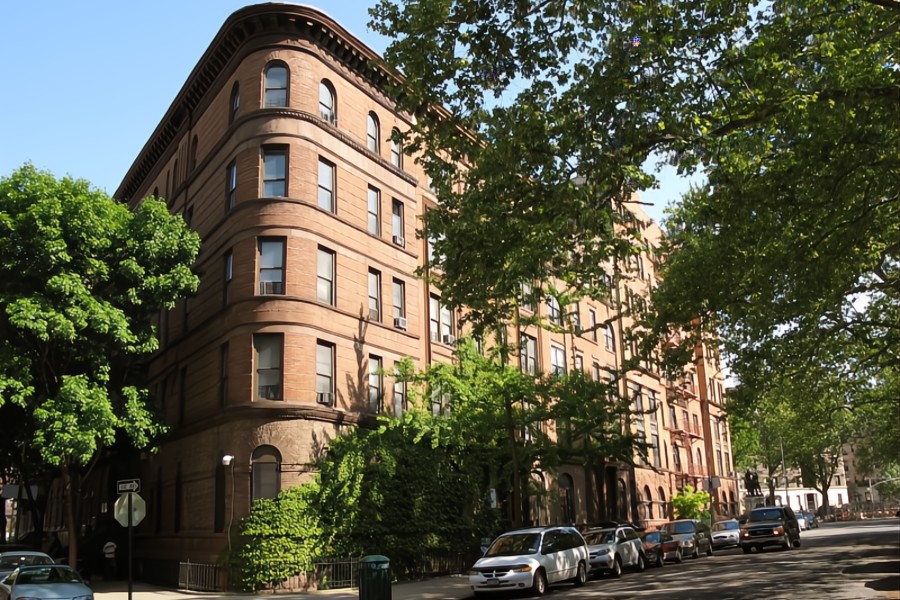
New York City Mayor Eric Adams today announced final rules governing the city’s first-in-the-nation municipal trade-in pilot program for unsafe electric bikes and other electric-powered mobility devices and their batteries.
The rules will allow eligible food delivery workers to replace their unsafe devices with certified, high-quality e-bikes and lithium-ion batteries. The program is part of the Adams administration’s “Charge Safe, Ride Safe: New York City’s Electric Micromobility Action Plan” to promote public safety as e-bike usage continues to skyrocket and will help reduce the risk of deadly e-bike fires, often caused by uncertified lithium-ion batteries, as well as enhance street safety by getting faster and heavier illegal mopeds off city streets. Thanks to the Adams administration’s initiatives, there has been a significant decrease in lithium-ion battery fire deaths and injuries so far this year. At this time last year, New York City had experienced 224 lithium-ion battery-related fires resulting in 122 injuries and 14 deaths. So far, in 2024, there have been 222 fires, 88 injuries, and four fatalities caused by lithium-ion batteries.
“My top priority is keeping New Yorkers safe, and that includes from new and emerging threats like the dangers posed by uncertified lithium-ion batteries,” said Mayor Adams. “Thanks to our new trade-in program, eligible frontline delivery workers who keep our city moving will be able to swap their dangerous bikes and batteries for safe versions for free — this is how we make our city safer and more affordable. This initiative builds on our efforts to help New Yorkers charge safe and ride safe — and our efforts are working, with significantly fewer injuries and deaths from lithium-ion battery fires this year compared to last. One death is still one too many, but we are making progress, and the rules we’re finalizing today show that New York City is again leading the nation in getting battery safety done right.”
“E-bikes are an important part of reducing pollution but not at the expense of riders, their families, or neighbors,” said Deputy Mayor for Operations Meera Joshi. “Today, we are proud to accept dangerous e-bikes and, in return, provide zero-emission, safe equipment so hard-working delivery workers can have peace of mind on the job and off.”
“Safer e-bikes, safer batteries, and safer charging practices are integral to a cleaner and more sustainable future, and this program will do this while also protecting all New Yorkers from deadly fires,” said New York City Department of Transportation (DOT) Commissioner Ydanis Rodriguez. “Delivery workers have one of the toughest jobs in New York City, and this trade-in program gives them access to safe equipment at work, while giving their families and neighbors greater peace of mind.”
“For three years, the FDNY has been working to stem the scourge of lithium-ion battery fires, and we’ve been attacking the problem relentlessly,” said Fire Department of the City of New York (FDNY) Commissioner Robert S. Tucker. “Getting uncertified lithium-ion batteries and devices off our city’s streets is critically important, and this trade-in program will help do just that. We are grateful to partner with the DOT on this out-of-the-box initiative that we know will make our city safer for delivery workers, our first responders, and the public.”
Currently, many food delivery workers utilize uncertified e-bikes and heavier electric and gas-powered mopeds, which cannot be registered with the New York State Department of Motor Vehicles due to the lack of Vehicle Identification Numbers. DOT’s e-bike trade-in program — the nation’s first municipal program of its kind — will focus on exchanging unsafe e-bikes and lithium-ion batteries for new devices. The $2 million trade-in program was established in response to Local Law 131 of 2023, sponsored by New York City Councilmember Keith Powers. The e-bikes provided will be UL-certified, the nationally-recognized standard for e-bike safety and performance. Selected participants will receive a UL-certified e-bike and two compatible, UL-certified batteries in exchange for their unsafe devices and batteries. By swapping these illegal devices for UL-certified e-bikes and batteries, the program will reduce fire and crash risks, help participants comply with local and state laws, and encourage workers to utilize cleaner and greener forms of e-mobility for deliveries.
The program offers trade-ins of both e-micromobility devices and lithium-ion batteries to help ensure that unsafe batteries and devices are fully removed from New York City streets, and that batteries are compatible with the devices they are powering. Eligible participants must reside in New York City, be at least 18 years of age, own an eligible working device, and have earned at least $1,500 in 2024 as a food delivery worker. Participants will receive two batteries because many delivery workers report that a full day of work often requires the use of two batteries. DOT will launch a public awareness campaign to share more details about the program among eligible applicants, who can start to apply in early 2025.
The program is one of several citywide initiatives to improve e-bike access and foster the growing use of legal e-micromobility options while keeping New Yorkers safe from uncertified batteries. DOT is working to install wider bike lanes along its busiest routes, undergoing a public e-bike charging pilot with delivery workers, and educating New Yorkers about safe and legal e-bike use. DOT’s e-bike charging stations feature battery-swapping cabinets from Popwheels and Swobbee and provide free services to a group of pre-registered food delivery workers. Findings from the pilot show that food delivery workers are enthusiastically participating and now feel productive, and that access to these charging stations has resulted in a reduction, and some elimination, of home charging. In addition to enhanced safety for delivery workers and their neighbors, there have been no safety-related issues or 311 complaints at any of the pilot locations.
Additionally, in the coming months, DOT will publish final rules that will expedite approvals for property owners to install electric micromobility device battery swapping and charging cabinets on public sidewalks, which is currently prohibited. This rule will enable property owners, or commercial tenants with the property owner’s consent, to apply for a permit to install a battery swapping and charging cabinet in front of their business on the sidewalk. Each cabinet must comply with specific siting and dimensional requirements and undergo FDNY and DOB review and approval.
“We want to protect the people of the city …”
“I have passed legislation and been a staunch advocate for lithium-ion battery safety. There have been four deaths already this year caused by fatal fires where e-bikes were suspected of being the cause. While that is a reduction from the 18 deaths last year, it is still four deaths too many,” said Harlem’s New York State Senator Cordell Cleare. “This e-bike trade-in pilot program to trade in unsafe electric-bikes and other electric-powered mobility devices and their batteries is an effort to keep New Yorkers safe. With the expansion of food delivery workers who use e-bikes and lithium-ion batteries, the Charge Safe, Ride Safe plan addresses the public safety concern of New Yorkers in the city, which this year alone has suffered 222 fires, 88 injuries, and four fatalities caused by lithium-ion batteries. We want to protect the people of the city, and this exchange plan can assist in that endeavor.”
“I am proud to lead in addressing dangerous e-bikes, including those with uncertified reconditioned batteries,” said New York State Assemblymember Jenifer Rajkumar. “Last year, New York City witnessed over 250 lithium-ion battery fires, taking the precious lives of 18 people and injuring another 133. To end this crisis, I authored Priscilla’s Law to require license plates and inspections of e-bikes, and I helped pass legislation to ban uncertified batteries. Our first-in-the-nation e-bike trade-in program continues our safety work by allowing delivery workers to exchange unsafe vehicles for high quality e-bikes with certified batteries. This $2 million program is a wise investment to take dangerous mobility devices off our streets, just as we do for firearms. Together, we will rid our city of unsafe and reckless e-bikes, paving the way for responsible use of the latest micromobility technology.”
“The safety of New Yorkers is a top priority, and the City of New York’s e-bike trade-in program is a significant step towards protecting our communities from the dangers of lithium-ion battery fires,” said New York State Assemblymember Yudelka Tapia. “By providing safer, certified alternatives, we are helping to reduce risks while supporting delivery workers who rely on these devices. I’m proud to have passed a bill in the state legislature that will enact a similar program statewide, ensuring all New Yorkers can benefit from these critical safety measures.”
“Fires caused by lithium-ion batteries have already taken far too many lives in our city, so we need to do all we can to prevent further tragedies,” said Queens Borough President Donovan Richards Jr. “The trade-in program now being launched will take uncertified and unsafe e-bikes and lithium-ion batteries out of service so they will no longer be a threat to the public. I encourage all those eligible for this program to take advantage of it and do their part to keep our city and its residents safe.”
“We’ve had too many fires due to defective e-bikes. We must provide delivery workers with tools to help prevent devastating incidents like the ones we’ve seen,” said New York City Councilmember Oswald Feliz. “With the new e-bike trade-in program, workers will have the opportunity to trade their unsafe batteries for certified batteries — a crucial step to help resolve challenges concerning fire safety.”
“E-bikes are a growing part of our transportation system, and we must make sure that they are safe for riders and their neighbors,” said New York City Councilmember Carlina Rivera. “We have made strides to reduce the risk of fire from uncertified lithium-ion batteries by passing important regulation for sales and making key investments in public and outdoor charging stations. This trade-in program will build on that progress to remove dangerous, uncertified batteries from our streets to make sure no one has to choose between a paycheck and their safety.”
“New York City’s 65,000 deliveries are well-positioned to help lead our city’s transition to a more carbon-neutral future – but as independent contractors who pay for their own operating costs, these workers struggle to find safe and affordable e-bikes, batteries, and battery charging stations,” said Ligia Guallpa, executive director, Worker’s Justice Project (WJP) and co-founder, Los Deliveristas Unidos. “Lack of access to such critical resources not only increases the risk of injury for these essential workers; it imperils the opportunity to transition to more sustainable forms of delivery. WJP applauds Mayor Adams and the Department of Transportation for its vision in ensuring that our city’s drive toward a more sustainable future is rooted in equitable access to 21st-century innovations that will protect our workers, our city, and our planet.”
“The tragic impact of fires from lithium-ion batteries is preventable, and we’re thrilled to see a major solution through our country’s first-ever municipal e-bike and e-battery trade-in program,” said Ken Podziba, CEO, Bike New York. “Obviously, we look forward to more being done and other solutions rolled out quicker, but we’re thankful that combating this crisis has become a top priority of our government leaders. I commend Mayor Adams, Commissioner Rodriguez, and Councilmember Powers for their leadership in prioritizing the safety of our delivery workers and everyone using e-micromobility devices.”

“En el Movimiento de Repartidores de Comida de la Ciudad de Nueva York, esperamos con interés este programa, y vamos a estar atentos a los beneficios que traerá para nuestra comunidad y para nuestras herramientas de trabajo. Gracias al Departamento de Transporte de la ciudad por su colaboración para hacerlo realidad,” dijo Sergio Solano, representante del Movimiento de Entrega de Comida de la Ciudad de Nueva York.
“E-bikes are supporting access to jobs for tens of thousands of New Yorkers,” said Melinda Hanson, co-founder, Equitable Commute Project (ECP). “We applaud the city for funding this trade-in program that will protect lives and livelihoods by ensuring workers have access to fire-safe, UL-certified models. When combined with the ECP’s SAFE trade-in program and the city’s battery-swapping program, this effort puts us on a clear path to stopping the fires and fully realizing the many benefits that micromobility has to offer.”
“Replacing unsafe e-bikes and batteries with certified, high-quality e-bikes has already proven to be hugely successful in reducing battery fires and improving street safety,” said Elizabeth Adams, interim co-executive director, Transportation Alternatives. “We’re grateful City Hall is taking illegal batteries off the streets and working to ensure every New Yorker has access to a safe, legal, and affordable e-bike. Coupled with on-street public charging and more physical safety infrastructure, we can make our city’s streets safe for everyone to e-bike around the five boroughs.”
Become a Harlem Insider!
By submitting this form, you are consenting to receive marketing emails from: . You can revoke your consent to receive emails at any time by using the SafeUnsubscribe® link, found at the bottom of every email. Emails are serviced by Constant Contact








